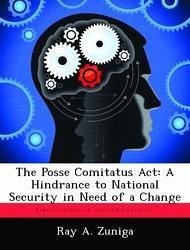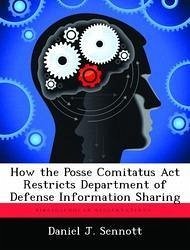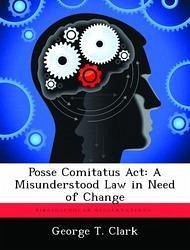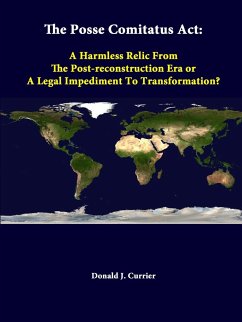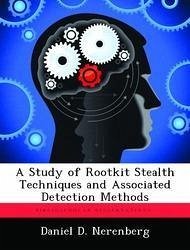Nicht lieferbar
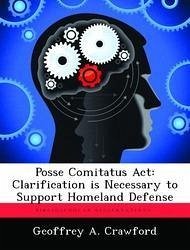
Posse Comitatus Act
Clarification is Necessary to Support Homeland Defense
Versandkostenfrei!
Nicht lieferbar
The 11 September 2001 terrorist attacks thrust the realities of an asymmetrical threat environment upon the United States in an unprecedented fashion. As a result of these attacks and the likelihood this country will experience additional attacks in the future, the Department of Defense and the subordinate services must understand the roles they will fulfill to identify and defeat this threat in support of homeland defense missions. The Posse Comitatus Act (PCA) is one of many significant issues the armed services must deal with in order to effectively participate in homeland defense. This law...
The 11 September 2001 terrorist attacks thrust the realities of an asymmetrical threat environment upon the United States in an unprecedented fashion. As a result of these attacks and the likelihood this country will experience additional attacks in the future, the Department of Defense and the subordinate services must understand the roles they will fulfill to identify and defeat this threat in support of homeland defense missions. The Posse Comitatus Act (PCA) is one of many significant issues the armed services must deal with in order to effectively participate in homeland defense. This law is central to much of the confusion and misunderstanding involved in the employment of military forces within the United States. Consequently, the primary question this thesis centers on is: Is it necessary to improve clarity in Department of Defense (DoD) interpretation and guidance of the PCA so that operational commanders are able to understand and support fully homeland defense of the United States of America as it relates to terrorist activities? In order to deter these future terrorist threats, every aspect of the homeland defense mission must be analyzed. Clarifying the meaning of the PCA for military commanders is a crucial step in this analysis.






